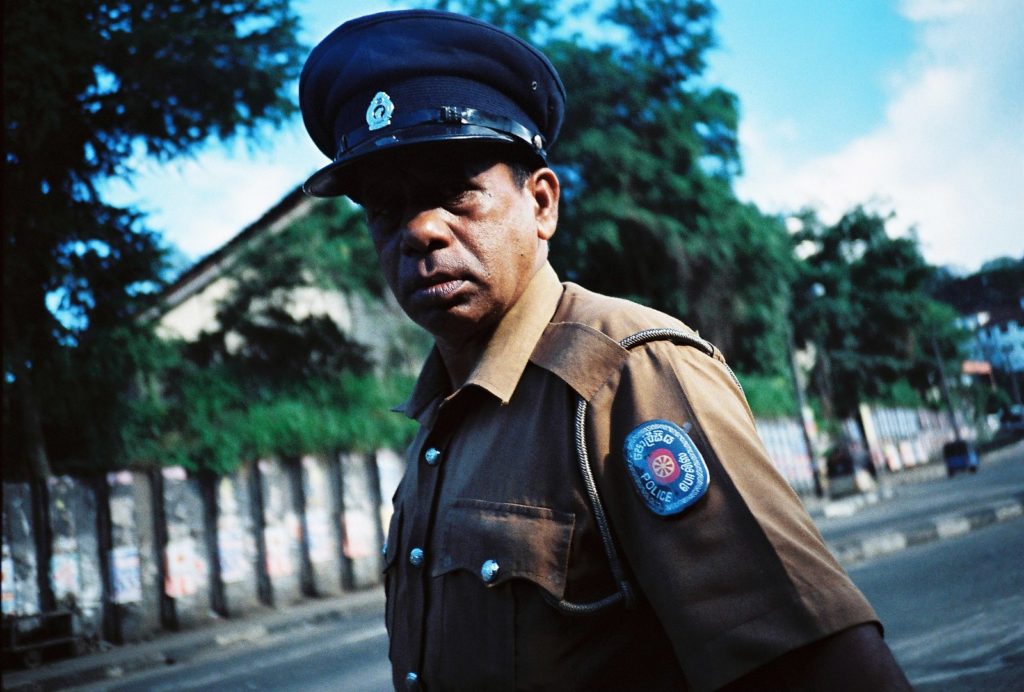Cyberbullying has been an increasingly occuring problem in the cyber space over the years. As technology and means of communication have grown to a deeply connected global network, the issues around bullying has sadly grown with it. We’ve seen countless instances of how these types of stories stories play out. While tools and counter measures are continuously being built to tackle the situation, the current brevity points to the need of ramping up efforts.
One of the challenges of addressing this has to do with how it’s defined. In essence cyberbullying refers to seek harm/intimidate/coerce someone electronically. But what that specifically encapsulate, sometimes differ owing to how fast-paced technology is in today’s environment. Though perhaps what remains unchanged for the most part is those vulnerable to cyberbullying
Speaking at ISC2 Colombo Chapter Sri Lanka’s “Emotional Effects of Cyber Bullying on the Society” event by, Dr. Nazhath Nazeer from the Ministry of Health points out that the risk of being cyberbullied is typically highest among youth who befriend strangers online, shared personal information on public forums, those who ignored age restrictions while online, and children who’s activities go unsupervised by parents.

Now, with the effects of the COVID-19, this has only worsened. The pandemic pushed many, including children to go digital, resulting a sharp uptick in online activity over the past couple of years. This meant that the risk of being cyberbullied has also gone up noticeably. According to SLCERT, over 15,000 cyberbullying cases were reported in 2020, while there were 8,000 cases during the first six months of the following year.
Combatting the challenges
Awareness plays a key role in helping curb the risk of cyberbullying. This is where parents’ know-how on helping children navigate digital devices and services safely comes to play. One method that’s being tested is a child protection committee at the school level via the National Child Protection Authority. According to Sociologist Shanika Malalgoda, Director of Planning and Information at NCPA, these committees would serve as an information hub on creating awareness on matters relating to physical, sexual, and emotional abuse as well as neglect.

Malalgoda also notes that not every citizen may be receptive towards this type of awareness mechanism. Thereby, she states that the NCPA is expanding its medium to cover every channel including social media and traditional media operations like radio and TV.
Another prominent issue is with seeking help. It’s no secret that not many look to seek help following a cyberbullying incident. Part of this is due to not knowing how to lodge a complaint while a larger part comes down to fear of personal detail exposure. To address this to an extent, the NCPA has set up a WhatsApp number (077 3220032) where anyone can text to report an incident. Here, the NCPA’s dedicated cyber surveillance unit operates in conjunction with other institutes such as the ICTA and SLCERT which aims to carry out the cases effectively while maintaining privacy, claims Malalgoda. She also mentions that should a victim require psycho-social support the NCPA is equipped with a competent team to offer such services.
Cyberbullying and the legislative side of things
Then there’s the legal side of things. True, there are laws against domestic violence, sexual harassment, defamation, and other related issues. However, not all aspects of cyberbullying is covered by law in Sri Lanka. In fact, there’s a need for legislation that details protections, punishments, and penalties when it comes to these types of cybercrime, according to one cyber law senior lecturer.
Globally, the Budapest Convention serves as a binding international treaty on cybercrime. It acts as a framework and enables countries to collaborate on cybercrime investigations. So far, 66 countries have signed on including Sri Lanka. Anudi Nanayakkara, Senior Manager – Legal, ICTA notes that Sri Lanka’s ability to implement the Budapest Convention came after seven years of being assessed under “stringent methodologies of whether Sri Lanka is capable of taking on an international convention to embed within their local laws.” She emphasized further that as Sri Lanka has proven itself, the country does have the necessary tools to combat issues like cyberbullying. The question remains a matter of implementation.
More recently, governments around the world have now set their eyes on better legislation towards protecting children and users in general on the internet. Australia has its “eSafety” agency as an independent online safety regulator. Europe’s “Digital Services Act and Digital Markets Act” and the UK’s Online Safety Bill has already made notable legislative changes. The US is also moving ahead with various proposals such as the “Kids Online Safety Act.”
The platforms’ role
Tech platforms is the other piece of the puzzle. In fact, these are part and parcel of the bigger problem, particularly considering how algorithms are designed around engagement and attention. For instance, one of Instagram’s own research from September 2021 indicated that Instagram is toxic for teen girls. Although, the platforms themselves make attempts at adding better protection, sometimes these tend to do just the opposite. For example, several TikTok accounts were said to be flagged for bullying when in reality those accounts were of ‘watchdog moms’ that have been actively trying to keep minors safe on the platform.
One method of curbing some of these issues is to introduce an age restriction on social media platforms. Although platforms already have some form of age restriction, younger users have found workarounds to bypassing these limitations. But platforms are already looking to counter this with the likes of Instagram prepping to introduce facial analysis to verify age.
Ease of access is another issue with a lot of these platforms. Sometimes, this comes in the form of third-party services that gets embedded on to existing platforms. For this very reason, Snap banned anonymous messages from third-party integrations along with age restricting friend finding apps to users 18 and above, back in March.
Though, arguably platform intervention can only go so far. For instance, the limitations of accounting for the nuances of languages like Sinhala and Tamil means that certain policies and procedures set on these platforms may not reach local audiences effectively.
The magic word is empathy
Apart from legislative challenges and platform policies, Nanayakkara mentions that it’s also important to go beyond the aspects of law enforcement and ensure building the capacity for empathy across the board. Why? Because often times the emotional impact of a cyberbullied victim could be long lasting if not addressed. Cases of severe depression, anxiety, anti-social behaviors and in certain instances, even suicidal tendancies are all too common. Hence the importance of empathy from society as a whole.
“Research has repeatedly shown that perceived support from friends and family will reduce the probability of depression and anxiety symptoms,” says Dr. Nazeer. She further emphasizes that adults need to be more receptive towards these issues.
The idea here is that more support, not only from a personal level, but from institutions and society in general can go a long way in fostering healthier conversations around the topic and negating the impact of cyberbullying.
Reach out
While there’s a lot more groundwork that should be done in tackling this problem in the long run, Sri Lanka already has initiatives that look to help those in need, with hopes of encouraging more to step up. “If the incidents during the last few months in Sri Lanka are anything to go by, speaking out makes a difference,” says Nanayakkara. So how can you reach out to the relevant authorities should you or someone you know has fallen victim to cyberbullying?
Last December, SLCERT set up a call center to assist citizens with social media-related matters. Thereby, users can call 011 2691692 or email [email protected] for technical issues or call 011 2432746/011 2337432 for legal support. Users can also email [email protected] or [email protected].
The NCPA already has a dedicated helpline on 1929 where anyone can call free of charge and can be accessed via all three languages. Of course, those who prefer a more convenient option could opt in for WhatsApp via 077 3220032.







GIPHY App Key not set. Please check settings